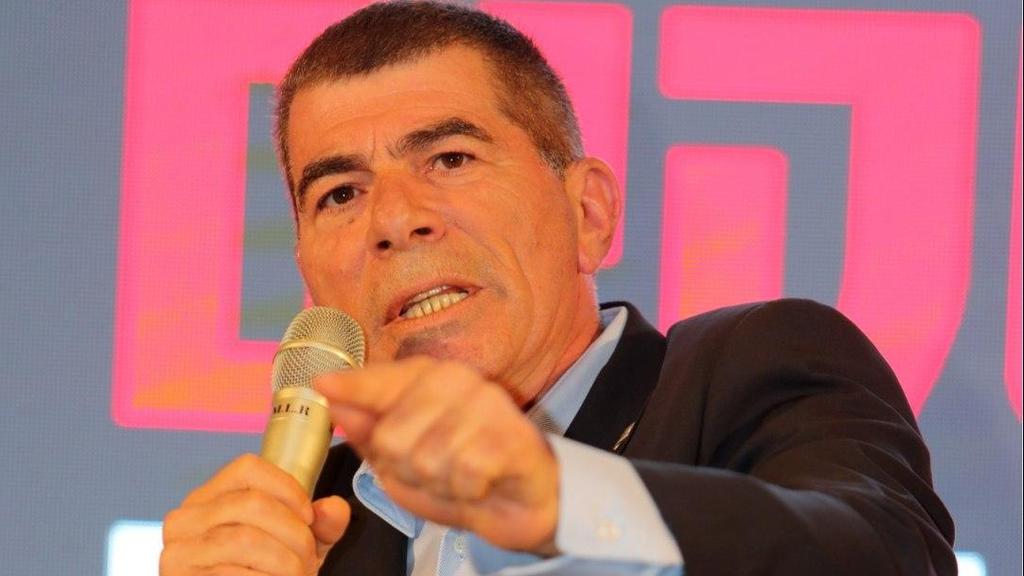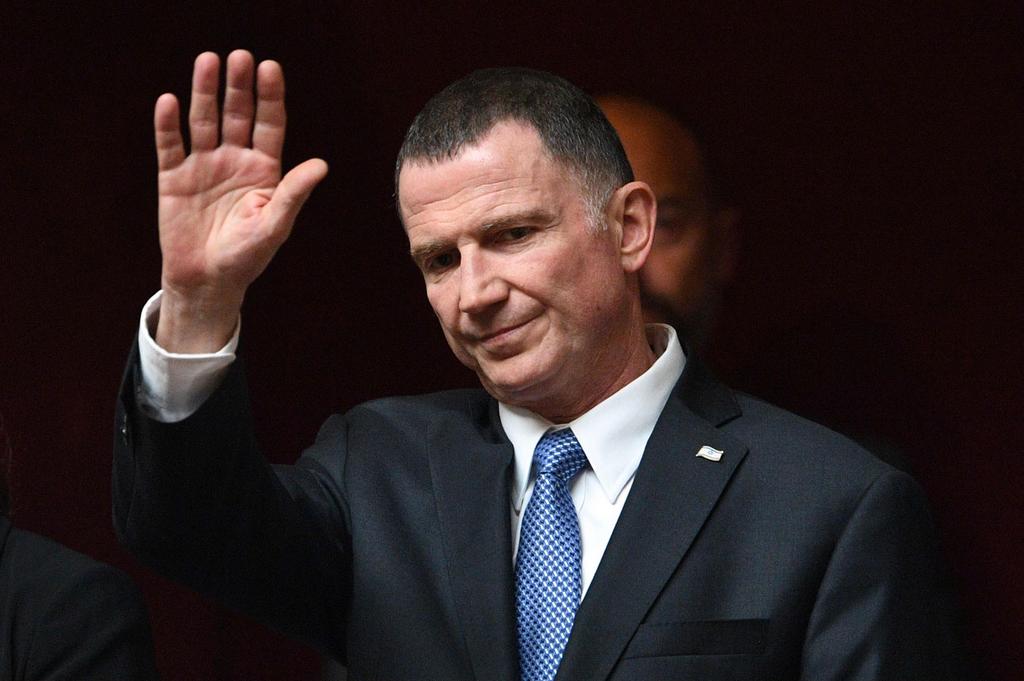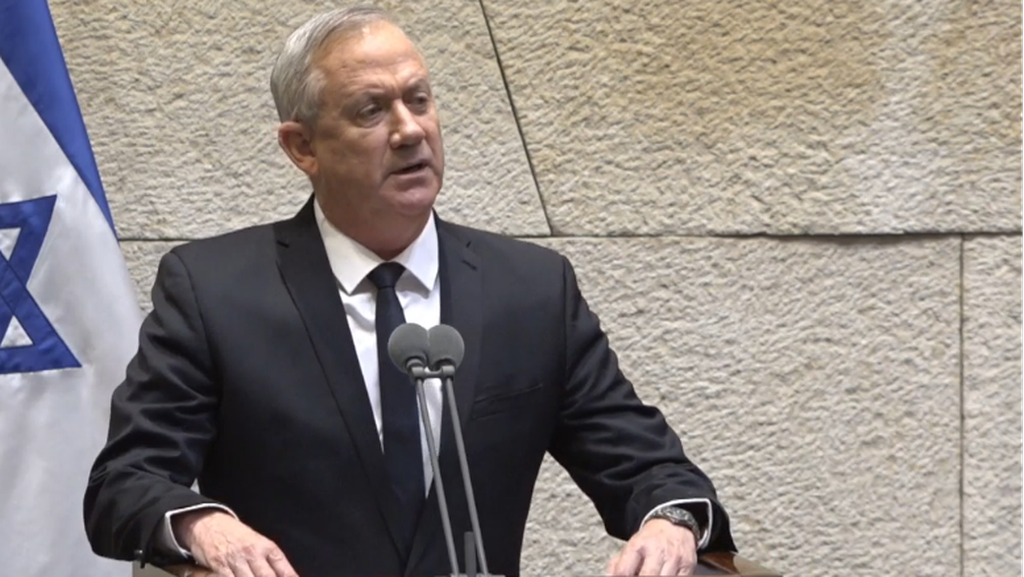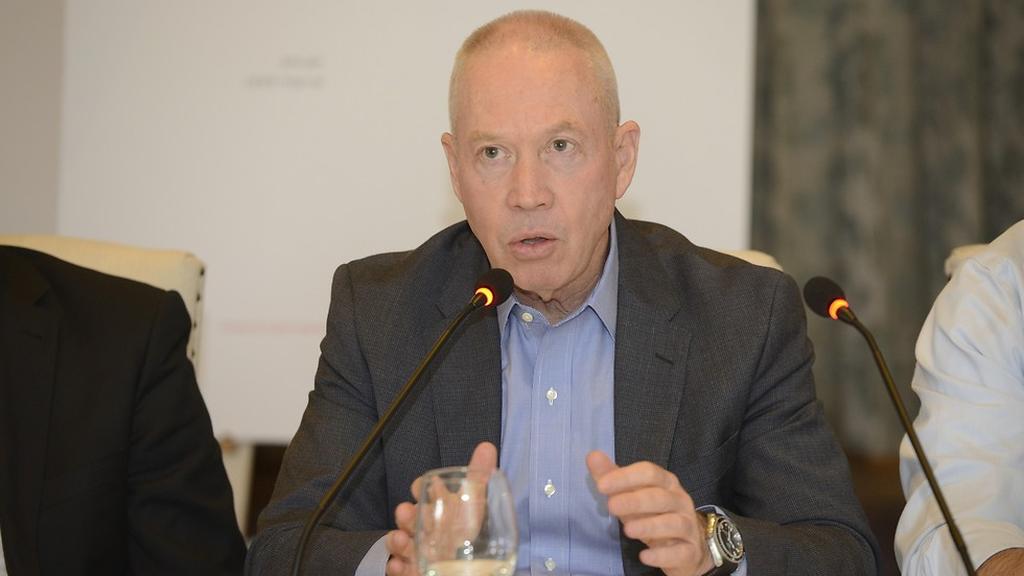Getting your Trinity Audio player ready...
Israel’s 35th government was sworn in on Sunday, after the country had an interim government for more than 18 months.
The new ministers will have a myriad of issues to deal with, including the restoration of the state’s international standing, the ongoing fight against the coronavirus, and the treatment of the state’s weakened populations.
9 View gallery
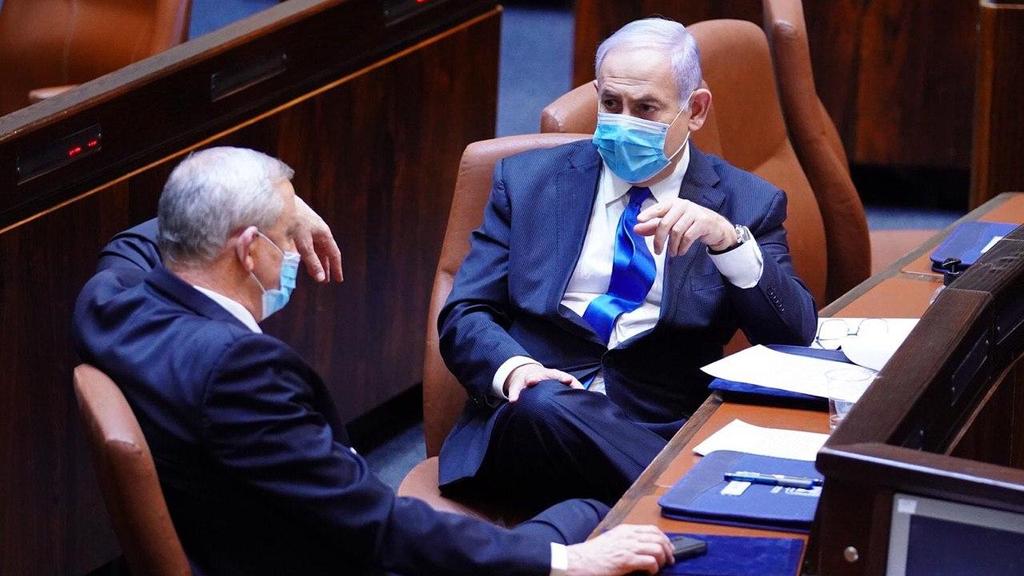

Prime Minister Benjamin Netanyahu and Defense Minister Benny Gantz at the first gathering of the new government in the Knesset
(Photo: The Knesset)
A diplomatic touch
Blue & White MK Gabi Ashkenazi is going into a Foreign Ministry at a nadir. The ministry has been left bruised, torn, without a budget and with unmotivated staffers who have no idea what the future holds.
With a deficit of NIS 300 million, both the ministry and Israel's embassies around the world have remained with no budget; the lack of international flights has further exacerbated dire state of foreign diplomacy.
In less than 18 months, Ashkenazi needs to leave his mark and revitalize the dying ministry whose powers have either been butchered or simply taken away.
Ashkenazi’s first task as foreign minister should be to go straight to the Finance Ministry (now headed by predecessor Israel Katz of the Likud) and demand his budget back, in order to enable the ministry to return to full functionality.
Ashkenazi has another mission ahead of him: To cultivate relations with leaders around the globe while standing in the shadow of Prime Minister Benjamin Netanyahu, who is in fact Israel's true foreign minister.
The new foreign minister will have to deal with the crisis between the Israeli government and the U.S. Democratic Party, and prepare for the possibility that former vice president Joe Biden will win the U.S. presidential elections in November.
9 View gallery
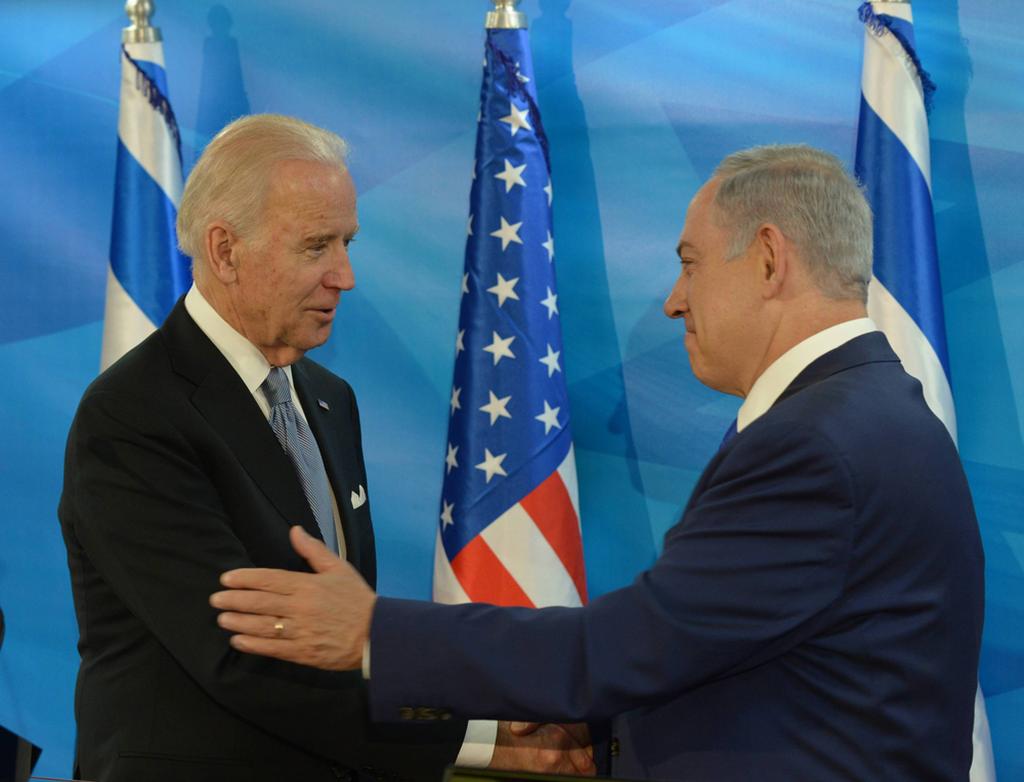

Then-Vice President Joe Biden meeting with Benjamin Netanyahu, March 2016
(Photo: GPO)
Ashkenazi will also have to deal with Netanyahu’s desire to annex as many territories as possible in the West Bank - a move that will most likely bring Israel to a head-on confrontation with the international community, the Palestinians and the Arab world.
The mission standing in front of Ashkenazi and Blue & White leader Benny Gantz will be to curb the annexation dreams of Netanyahu and his right-wing bloc.
Another challenge is to try to expand Israel's relations with Arab states. The emphasis is on the Persian Gulf, with which Netanyahu’s government has had an underground love affair over the years.
Relations with Poland will also need special care, after former foreign minister Katz said not so long ago that, “Poles suckle anti-Semitism with their mothers’ milk.” The quote was attributed originally to former Likud prime minister Yitzhak Shamir.
In addition, the International Criminal Court in The Hague might decide to investigate Israel for war crimes. Ashkenazi should prepare to thwart such a decision, or else cope with its diplomatic ramifications in the form of the arrest of Israeli officers and leaders abroad.
Ministry on life support
New Health Minister Yuli Edelstein is also going into a battered and impoverished ministry. The previous ministers, Yaakov Litzman and Netanyahu himself, left behind a ministry divided and roiling.
There are also allegations of tunnel vision and lack of transparency in decision-making, sidelining senior officials in positions of influence and hiding information.
Edelstein managed to skip over the first landmine by announcing that he would appoint a medical professional as ministry director-general, thus preventing a direct confrontation with senior health officials.
He will immediately have to deal with the crisis in the hospitals, which have suffered a significant decrease in finances due to the drop in hospitalizations and surgeries during the coronavirus crisis.
The issue of a shortage of hospital beds, in particular during the winter, is also expected to be the focus of the new minister's attention.
9 View gallery


Medics in protective gear against coronavirus with a patient at Ichilov Hospital in Tel Aviv
( Photo: Zlila Helman)
Edelstein will also need to prepare the health system for another eruption of coronavirus next winter, which may coincide with an increase in influenza cases. He will also have to deal with the global shortage of influenza vaccines and the preparation of hospitals to accommodate thousands of patients.
Another issue Edelstein will have to deal with is the doctors' collective wage agreement that expired in December 2019.
Negotiating a new agreement offers a significant opportunity to improve doctors' pay conditions, but could also be the key to solving interns’ demands to significantly shorten their on-call hours.
This will be a true leadership test for Edelstein, who will surely have to deal with pressures from the Finance Ministry in solving these issues.
Fighting for money
For Blue & White leader Benny Gantz, the first issue her will have to face as defense minister will be the ministry's budget.
9 View gallery


Aviv Kochavi, left, and then-IDF chief of staff Benny Gantz, center, at a 2014 military ceremony
(Photo: Aviahu Shapira)
Gantz will also have to deal with the ambitious plan of current chief of staff Aviv Kochavi. The plan, dubbed Tnufa (momentum) is meant to focus on swift decision-making regarding state enemies, upgrading combat equipment and introducing various structural changes to the army.
This plan has been in limbo for the past 18 months due to Israel’s ongoing political crisis and lack of a stable government.
The upper echelons of the IDF have agreed to shrink their budget requirement by 30%, but they still expect there to be a separate budget to deal with the Iranian threat.
Gantz will also deal with fact that in recent years, the military has cut back on entire divisions and squadrons, but has also been unbridled in investing its resources for the next war.
This means that regular IDF units will receive a larger budget while reservist units will be left behind, with fewer training regimes, obsolete equipment and missing equipment.
Another urgent mission are the allegedly secret negotiations with Hamas to return two Israeli captives and the bodies of two fallen soldiers held by the organization. If Netanyahu and Gantz work together for a compromise on the issue, this is likely to happen in the coming weeks, solidifying Gantz's tenure as defense minister.
A hard lesson
The new education minister, Yoav Galant, is going into the ministry that has the second largest budget after defense, and has two million and 200,000 students in its care.
Galant will have to solve the crisis that is now on the minds of hundreds of thousands of parents, teachers and students: The school year during the coronavirus crisis will either be extended by nine days or the summer vacation will take place in a different format, if at all.
Another pressing issue is providing a long-term solution to reducing the educational gap between students following the coronavirus crisis, addressing the isolation and mental harm experienced by students, and repairing the bruised relationship between teachers and parents.
The debate and chaos surrounding distance learning have revealed the failure of the education system with regards to computers and infrastructure, disparities between authorities over providing student computers, and gaps in remote teaching practices during both regular times and crises for students and teachers alike.
9 View gallery
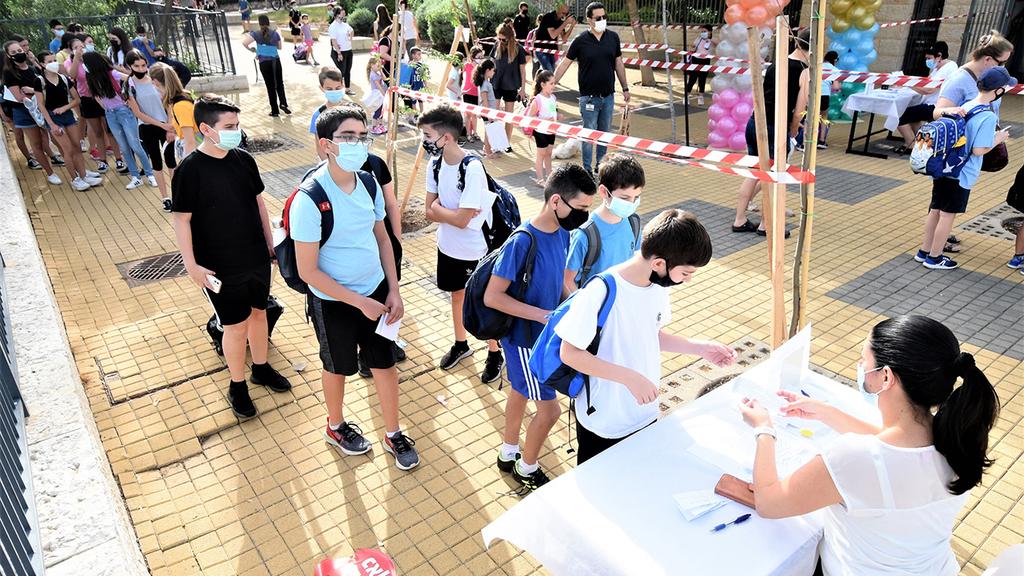

Students return to school in Kiryat Ata after the coronavirus closure was lifted
(Photo: Nahum Segel)
One of the critical issues that the education system has been dealing with in recent decades, and will have to be managed by the new minister, is the lack of professional teachers and the quality of teacher training.
Due to a shortage of teachers, schools are giving up teaching certain subjects or continue to employ subpar teachers. Only comprehensive reform can lead to real change.


